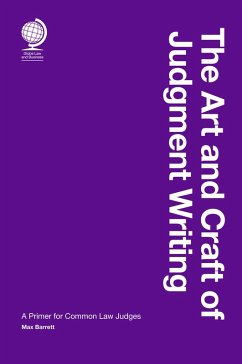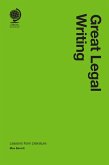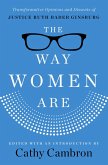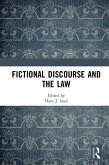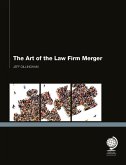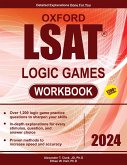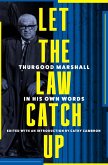Judges are increasingly aware that the best way of enhancing public confidence in court systems is not only by providing a quality service but doing so compassionately and respectfully. The art and craft of judgment-writing is a critical element of this process. This book looks at the judgments of historically great judgment-writers from the US, UK and wider common law world (in particular Australia, Canada, India, Ireland, Israel and New Zealand). It is written not from the perspective of what the author can teach but with the aim of identifying essential elements of good judgment-writing in great judgments and insightful commentary. Written by Dr Max Barrett, a judge of the High Court of Ireland, individual chapters focus on subjects such as judgment purpose, length, style and structure, concurring and dissenting judgments, judgment-writing for children and vulnerable parties, as well as more general lessons in good writing offered by great authors from Orwell to Twain. Among the lessons to be taken from great common law judges are that: a good judgment possesses an ability to rise above immediate facts and to see a problem in its wider perspective; a sense of empathy/sympathy for those faring badly is always important; and there is nothing wrong with language that is occasionally flowery and ornate; however, the best judgments are crisp and persuasive. A great author such as Mark Twain teaches, for example, that: every element of a judgment should be necessary to that judgment and any unnecessary element excised; any person or event included in a judgment should be included for a reason; and a judge should always use the right word for what she wants to state, 'not its second cousin'. This book is intended for novice superior court judges, their more seasoned colleagues and all with an interest in legal writing (including legal practitioners, law teachers and law students). Lower-court judges required to write judgments should find the book valuable; and judges at all levels should find the additional chapter on ex tempore judgments of use.
Dieser Download kann aus rechtlichen Gründen nur mit Rechnungsadresse in A, D ausgeliefert werden.

